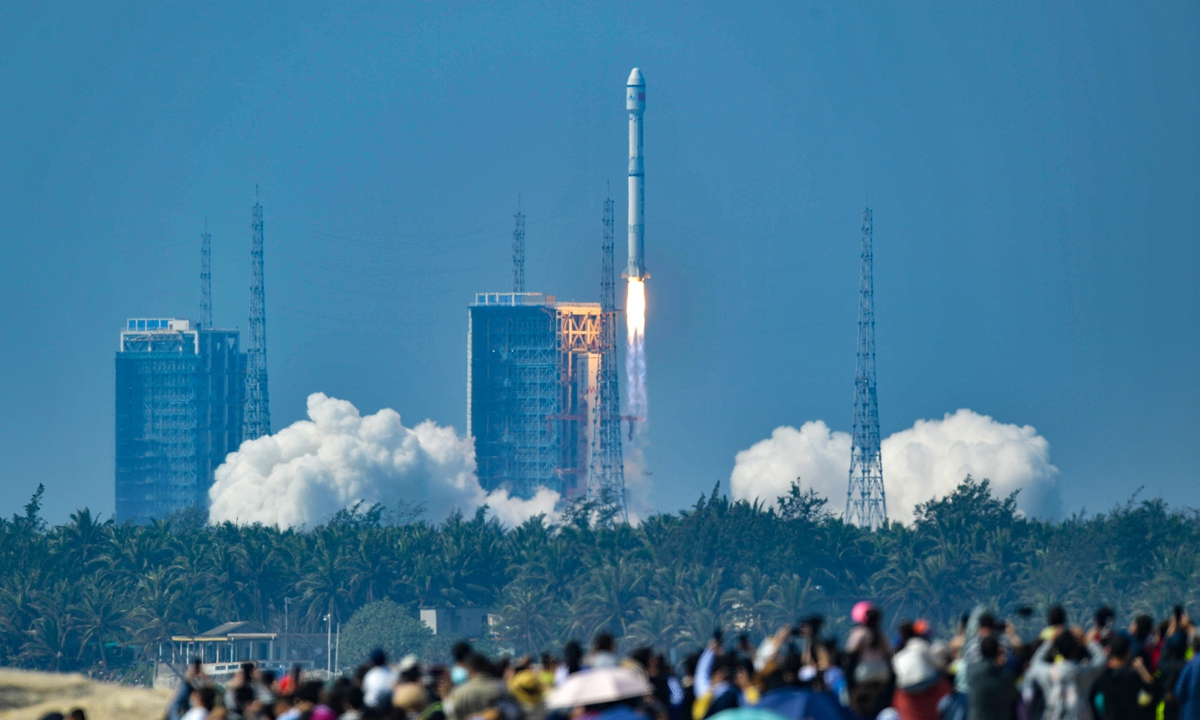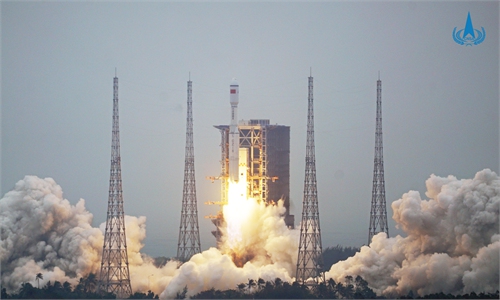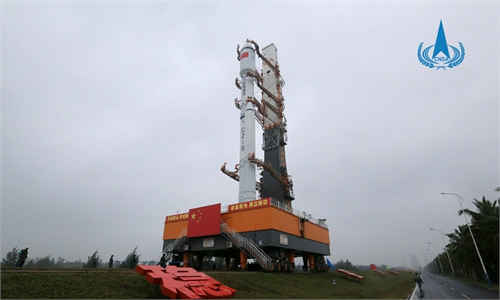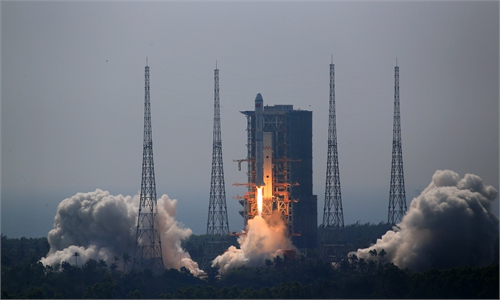Two new Chinese carrier rockets to make maiden flight this year amid growing demand for commercial launches

A Long March-8 rocket carrying 22 satellites blasts off from Wenchang Spacecraft Launch Site at 11:06 am in South China's Hainan Province, February 27, 2022. The launch set a new Chinese record for the most satellites sent into orbit at once. They include remote sensing and environmental monitoring satellites. Photo: VCG
Following the launch of China's new-generation Long March-8 carrier rocket, which successfully sent 22 commercial satellites into preset orbits in one go, China's top rocket manufacturer revealed to the Global Times on Tuesday that apart from the Long March-8, other types of rockets will also be rolled out this year for more commercial spaceflights. These include the Long March-11 and the Smart Dragon-3, which is expected to make maiden flight in September 2022. Both types are solid-propellant rockets capable of seaborne launches.
Jiang Jie, chief designer at the China Academy of Launch Vehicle Technology (CALT) and a member of the 13th National Committee of the Chinese People's Political Consultative Conference (CPPCC), said on the sidelines of the two sessions that the academy has developed three types of rockets that can serve commercial spaceflights - two from the Long March family and one from the Smart Dragon family.
The Long March-8 is China's new-generation medium-sized carrier rocket. As a new member of the Long March family, it is developed by means of modular combination that makes it more economic, advanced and adaptable. Being able to perform low-and-medium-orbit launch missions, the rocket model will be tasked with meeting the surging demand for most launch services from commercial satellite companies at home and abroad.
The Long March-11 launch vehicle is the first solid-fueled rocket in the Long March family. It is known for short launch cycles and low launch site facility requirements, and can be launched on land or at sea. It is mainly used to support the rapid constellation development and complementary launches of small satellites. Its first flight was in September 2015 from the Jiuquan Satellite Launch Center in northwestern China's Gobi Desert, and it had his first sea-based launch in June 2019. This year, it is tasked with four to five launch missions, about two of which are for commercial purposes.
The Jielong-3, or Smart Dragon-3 (SD-3), is another commercial rocket developed by CALT. The solid-fuel launch vehicle is capable of sending up to 20 satellites in one go. It's also fitted with facilities that support land- and sea-based launches. The SD-3 is expected to make its maiden flight in September 2022. Two to three missions have been arranged for the rocket model for this year. After 2023, the rocket will be tasked with no less than five missions a year, Jiang told the Global Times.
Seaborne liftoffs can not only fill the gap in China's space program, but can also significantly enhance the launch capability for carrying low inclination orbit loads - which are seeing growing demands domestically and in countries involved in the Belt & Road Initiative, including Indonesia and Malaysia. The demand has opened a new path for Chinese rockets to "go abroad."
Compared with rocket liftoffs from land, sea-based launches will better ensure the safety of densely populated areas along the rocket's trajectory, Jiang noted, adding that it's also a technical foundation for future reusable rockets.
"Chinese private enterprises have been actively entering the space sector in recent years, with low-and-medium-orbit commercial satellites becoming the main focus of their entry points. Data showed that China now has announced 12 plans for small satellite constellations for the next 5-10 years with a total of more than 2,200 satellites, most of which are remote sensing and communication satellites," Jiang noted.
The Long March-6A commercial carrier rocket, featuring modular designs and flexibility and tasked with sending satellites to multiple types of orbits, is also scheduled to make maiden flight this year, the Global Times learned from the China Aerospace Science and Technology Corporation on Tuesday.





